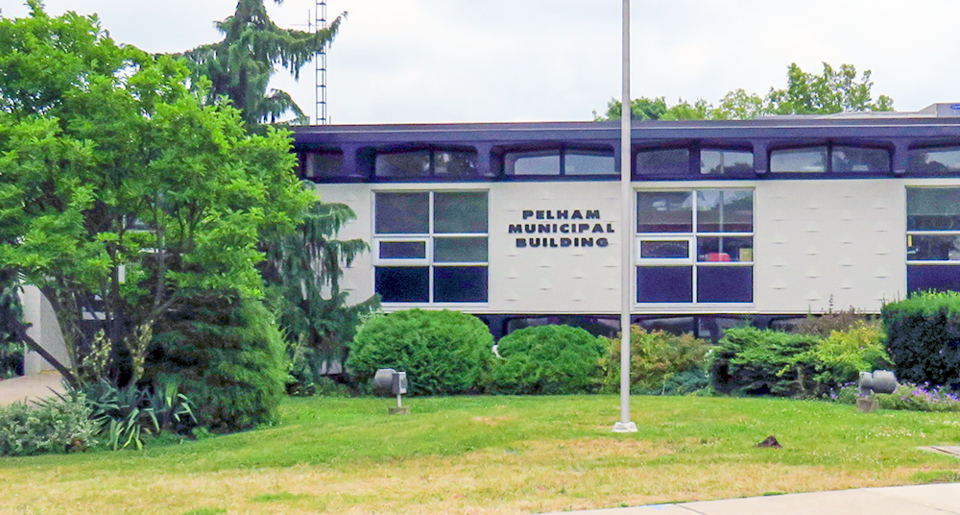We are living in transformative times
BY BOB HILDEBRANDT Pelham Town Councillor Ward 3
Disruptive forces are in play as we all try to navigate the New Normal. The fast rise in prices over the past year or so of essential items such as food, fuel, and a place to live is affecting everyone, including people in Pelham. Climate change has affected our weather. Both federal and provincial government policy on development and greenhouse gas emissions targets significantly impact and constrain municipal choice and municipal policy. I have seen this firsthand for almost four years now.
To adjust to these pressures entails a transformation of the way we commute, build, produce/consume/handle our waste, and Ontario’s energy supply. Town policy, found in such documents as the Official Plan and Zoning Bylaw, must recognize and respond to all of the above, while also creating incentives for positive change to address these disruptive forces.
For almost two years, council and staff have been working on a new Zoning Bylaw to replace the existing one, which is now 35 years old. There is plenty of modernization within the draft document. While we continue to work on some of the details, the general thrust is that it will allow for more on-farm businesses, it will allow for more types of housing, and it will encourage greener transportation. I am confident that we are on the cusp of making major and positive changes to this critical component of Pelham’s policy regime. It should mean a better future for all of us.
Commuting
Planning to provide solutions to Pelham’s parking problems is the first step. This should be assisted by policy providing favoured locations for ride share, carpooling and bikes/scooters to facilitate change. In addition, the establishment of the local economy through zoning bylaws allowing the infrastructure required to easily invest and encourage this development.
Buildings
Encompassing “Green” structures’ planning, design, construction, operations, and end-of-life recycling or renewal, while considering energy, water, indoor environmental quality, materials selection and location, is essential for today's community. Green buildings and communities reduce landfill waste, enable alternative transportation use, and encourage retention and creation of vegetated land areas and roofs.
Wasting less and no longer disposing of organic matter in landfills and diversion from landfills will assist climate change goals
Green design, particularly LEED-certified buildings, provide the means to reduce the climate impacts of buildings and their inhabitants.
Incorporating Low Impact Design (LID) characteristics, such as permeable pavement, specialized storm water features, and using botanical features to reduce runoff all contribute.
These are all a part of the plan for Pelham going forward.
Produce/consume/waste
The local economy needs to become the backbone of the New Normal. Working at home or close to your workplace will result in increased local production and/or sales of required products. Wasting less and no longer disposing of organic matter in landfills and diversion from landfills will assist climate change goals.
Engineered landfills, such as Pelham’s, in cooperation with Lincoln, West Lincoln and Grimsby (one of a few in Ontario), on Niagara Road 12, incorporate procedures for handling our waste that includes the latest diversion and segregation policies.
Energy requirements
Electrical infrastructure is a key to the New Economy.
The Study Team representatives from Local Distribution Companies (LDC), the Independent Electricity System Operator (IESO), and Hydro One provided input and relevant information for this Region regarding capacity needs, reliability needs, operational issues, and major assets/facilities approaching end-of-life (EOL) that formed the basis of a Needs Assessment Report May 14, 2021.
Pelham has 2 hydro suppliers—NPEI and Hydro One. Provincially, Hydro One is the largest LDC but in the Niagara Region, Hydro One supplies Thorold and part of Pelham. NPEI supplies West Lincoln, Lincoln, Niagara Falls and part of Pelham.
The widespread recent power outage, with a fire being the reason at the Hydro One transfer station in Thorold, raises questions of capacity, and demand overwhelming the grid. There are obvious questions that we all should be asking. What is a fact is that Hydro One was scheduled to replace this transformer in 2024.
NPEI has stated: “We do not have any capacity problems in our system. Having said that, we need and will make several long term investments in the next five to seven years to address long term growth in our service areas. The cost of this will easily exceed $50 million in today's dollars.”
On another note: Negotiations with Hydro One through the Energy Minister and our local MPP have resulted in promises of reclassification for Fonthill to Urban Density; however, to date no confirmation has been received from Hydro One. The next step in the negotiations is for reclassification for all of Pelham. This would result in a similar classification enjoyed by Thorold and every NPEI customer. My efforts to champion this reduction for the community will not stop until such time as urban Fonthill is classified on an equally high density as rural Thorold. The absurdity is clear to everyone except Hydro One (which profits from the status quo).
On a positive note: Hydro One stated that in the fall of last year they made changes and upgrades to the transformer that feeds the Fenwick area to eliminate the low voltage complaints. This is being monitored to ensure compliance. ◆



